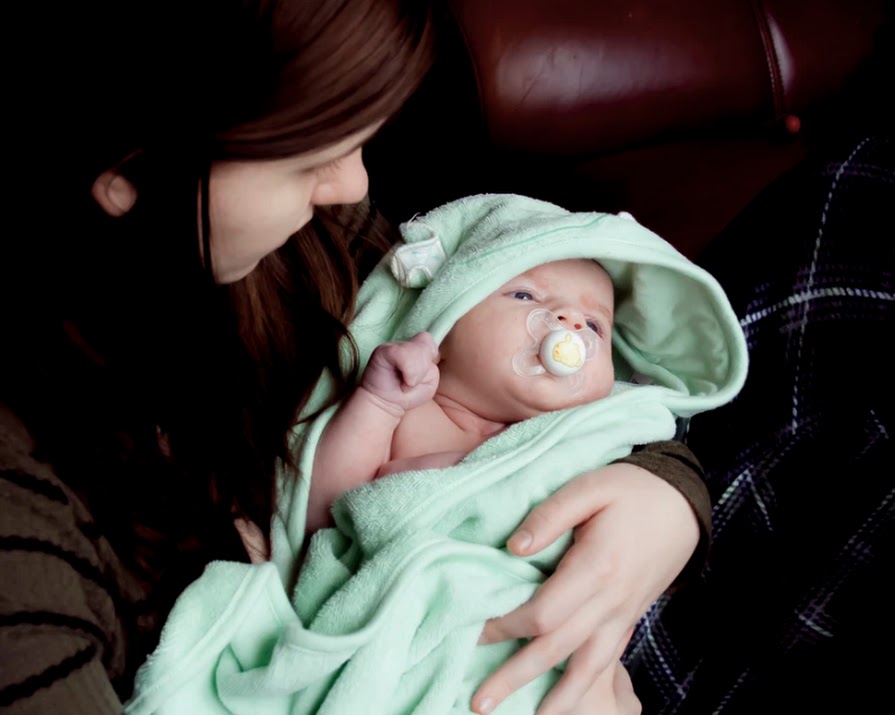
By Amanda Cassidy
06th Feb 2024
06th Feb 2024
Postpartum psychosis is one of the most underdiagnosed and undertreated illnesses that a new mother can face. So why don't we know anything about it?
“I was getting pretty consistent thoughts that I should end my own life and it would be better to take my child with me. Looking back, it was scary how matter-of-fact I was about this. The whole thing hit me completely out of the blue.” Susan, whose name has been changed to protect her anonymity, was diagnosed with postpartum psychosis after the difficult birth of her first daughter.
The mum-of-two says she had no idea what was happening at the time. “Once my husband brought me to the hospital, I was completely catatonic. I felt there were dangerous people in the room and if I moved, they would attack me. It makes no sense now, but at the time these delusions were very, very real to me.
When I got my diagnosis I was even more confused – I’d heard of postnatal depression but never postnatal psychosis.”
Stigma
Half of all new mums will experience the ‘baby blues’ which normally hits around three days after birth. You have mood swings, feel teary and anxious at times. This is common and usually stops by the time the baby is around ten days old. We also know that postnatal depression affects around 15 in every 100 women after the birth of their child, with symptoms mirroring those of depression – low mood and anxiety that last more than two weeks.
However, postpartum psychosis is even less talked about. It is a severe episode of mental illness which begins suddenly in the days or weeks after having a baby.
It is classed as a psychiatric emergency as symptoms can include mania, severe depressive episodes, confusion, hallucinations and delusions.
It can happen to any woman, and although considered much less common than postnatal depression (it occurs in about 1 in every 1,000 women who have had a baby) it still affects thousands of women in Ireland every year.
Genetic factors can play a part in the likelihood of suffering an episode of postpartum psychosis and changes in hormone levels or disrupted sleeping patterns are also thought to be involved.
According to the Royal College of Psychiatrists, the symptoms are vast when it comes to diagnosing postpartum psychosis but they include feeling high or manic, behaviour that is out of character, finding it hard to sleep, feeling as if you are in a dream world, feeling paranoid and suspicious and you may lose your inhibitions. Severe confusion and racing thoughts are also likely, as well as delusions.
They give the example that you might believe you have won the lottery. You may think your baby is possessed by the devil. You might think people are out to get you and you may experience hallucinations: this means you see, hear, feel or smell things that aren’t really there.
Postpartum psychosis is often a manifestation of bipolar disorder and usually requires hospitalisation largely because of the high rates of suicide (5%) and infanticide (4%). The condition responds well to treatment, but the problem is that the condition is not widely recognised here or known about.
This may be because motherhood is usually depicted as a wonderful and special time that alienates those mums who feel that they don’t match this “normality”. The other problem is that the symptoms often seem, to other family members, as simply part of the sleep deprivation and anxiety that comes with being a new mum.
Shining a light
The release of the movie Tully staring Charlize Theron managed to put maternal mental health issues like this back into the spotlight. At the core of the movie, there is a twist so beware of spoilers if you read any further. The film shows the lead character, Marlo struggling with motherhood after the birth of her third child.
It starts off with the usual elements of new parenthood – the mess, the nappies, the stress. But you get the idea that something is a little off. Charlize Theron’s character, Marlo decides to get a night nurse and in arrives Tully. Suddenly the house is spotless, cakes are baked and everything seems to be going swimmingly until we see Tully having sex with Marlo’s husband.
In the end, Tully convinces Marlo to drink-drive and she ends up in the hospital. The twist is that she is alone and we realise that Tully the night nurse has been a delusion – a ‘better’ version of Marlo conjured up from her own deluded mind. People have had a great deal to say about the idea that if Marlo was suffering mental health problems, why wasn’t it pointed out.
Critics view the film as a missed opportunity to show the treatment available and to help those going through such mental health problems to feel less alone.
Perhaps if this was in real life, you might agree, but we can’t always hold a film to the same high standards. If anything, the film finally opens up about this illness and might be one way to educate people about some of the more severe postpartum mental health issues that women can experience.
The mania that Marlo displays (she obviously cleaned the house herself instead of sleeping) and her confusion, do point to the possibility that she had postpartum psychosis, a severely underdiagnosed and undertreated illness that has devastating consequences for both mums and their babies.
After her own harrowing experience, Susan now wants other mothers to understand a little more about the illness. She slowly got better with the right treatment and went on to have another daughter without any complications. She says, that despite everything, she counts herself very lucky.
“I want to say to any new mum who is struggling with mental health issues no matter how small, to open up about them, find support and don’t ignore your symptoms. If I didn’t get help things could have turned out a lot worse – I could have hurt my precious daughter if I didn’t get the right help and that is a lot to live with.”
You will find further information and support for maternal mental health issues here.
This article was originally published in September 2021.























